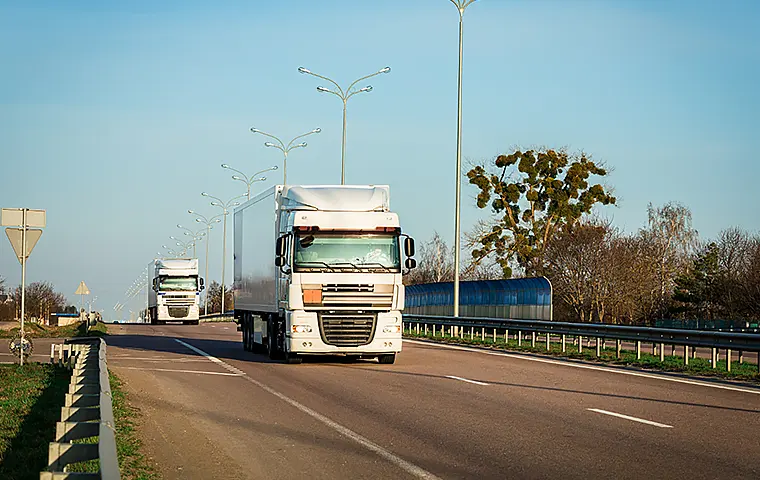Truck drivers have various routes they can take in their career path. Over-the-road (OTR) driving is a common starting point for new drivers but also a popular path for seasoned drivers. Before considering your next career move, let’s explore the OTR driving definition, its perks, and how it stacks up to local driving.
What is OTR Driving?
OTR driving is also referred to as long-haul trucking. Drivers haul freight over long distances in large commercial trucks like semi-trucks or tractor-trailers. With the distance they have to go, truck drivers can be on the road for days or weeks before they deliver or pick up cargo at their final destination.
Like their counterparts, OTR drivers operate under the hours of service (HOS) regulations. When they’ve reached the maximum number of hours they can be behind the wheel for the day, drivers can head to a truck stop and set up their sleep accommodations. OTR trucks have sleeper cabs with a bed and other amenities for a comfortable night’s rest.
Benefits of OTR Driving
1. Competitive Earnings
OTR drivers are typically paid by the mile — and they can earn more pay because they travel longer distances. Moreover, because they deal with a demanding schedule and lifestyle, they are often compensated for that. According to ZipRecruiter.com, the national average salary for an OTR driver is $77,916.
2. More Travel Opportunities
During their long journeys, OTR drivers often cross state lines and sometimes drive across the country. This opportunity allows drivers to visit new cities, enjoy new cultures, and take in scenery along the way. The variety in scenery and destinations makes life on the road all the more exciting.
3. Job Stability
Long-haul trucking is an integral part of the modern supply chain — think Walmart and Amazon, for example. As these large suppliers continue to grow, so does the need for OTR drivers. This demand translates into better job security and stability for OTR truck drivers.
OTR Driving vs. Local Driving
Whereas OTR drivers deliver and pick up freight across long distances, local drivers work within a limited local or regional area. Their routes are usually short, and it’s typical for them to make deliveries and return home before the workday ends.
Rather than the large commercial trucks OTR drivers use, local drivers tend to operate smaller delivery trucks. That way, they can more easily handle transit through suburban and urban areas. On a given day, local drivers can make several deliveries and pickups from different locations; compare that to OTR drivers who make fewer stops and are more focused on covering distance.
OTR drivers and local drivers can transport similar kinds of cargo, like food and beverage or construction materials. Generally, OTR drivers handle more diverse cargo. In contrast, local drivers focus on regional needs — for example, local deliveries for e-commerce companies.
FAQs About OTR Driving
Which is better: OTR or local driving?
Over-the-road (OTR) driving and local driving each have pros and cons. Choosing between the two is a matter of considering your preferred lifestyle and career goals. If you enjoy traveling and want to earn higher pay, OTR driving could be the right fit for you. If you appreciate driving in familiar areas and the convenience of being close to home, local driving may be the better bet.
How can I become an OTR driver?
Operating an OTR truck requires a commercial driver’s license (CDL). Once you earn your CDL, you can start to browse job opportunities. While some OTR companies offer entry-level positions, many prefer drivers with proven experience and a clean driving record.
There’s Value in Understanding OTR Driving
Whether you’re considering a career change or a new industry opportunity, knowing the OTR driving definition, its benefits, and its relation to local driving is vital. It can help you make the most informed decision when it comes time to make your next career move in the ever-growing trucking industry.
As an end-to-end fleet management solution, Azuga is here to support truck drivers and fleet operators alike. Schedule a demo to see how we can help.








